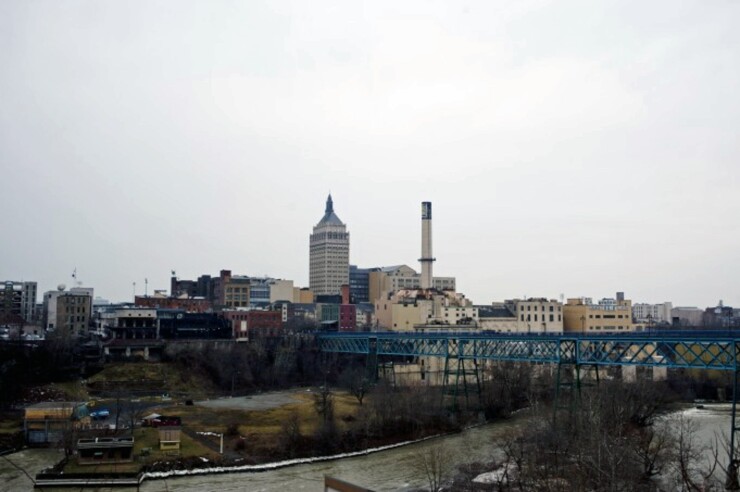A sudden decline in school district reserves drove a two-notch downgrade for Rochester, New York.
That decline has also drawn the interest of the Securities and Exchange Commission, which subpoenaed local officials, according to

Moody’s Investors Service lowered Rochester’s long-term bond rating to A2 from Aa3 Monday and assigned a negative outlook, citing major budget struggles in the city’s school district.
Moody's had placed Rochester on review for a possible downgrade in September following reports of a $30 million to $50 million shortfall in the school district’s 2019 fiscal year budget and city officials calling on the state to separate the 26,000-student school system from the city’s operations.
Moody's on Monday also downgraded the city's bond anticipation notes to MIG 2 and affirmed the MIG 1 rating on outstanding revenue anticipate notes.
Analyst Robert Weber wrote that the Rochester Board of Education’s reserves dipped by more than $42 million in fiscal 2019, nearly $30 million more than the school district’s management projected in late July and marking the second consecutive year that year-end projections were missed. A BOE audit showed various cost overruns for salaries, benefits, transportation and other regular operating expenses as the cause of the deficit, but Weber said there is no “clear explanation” for why July 2019 estimates were so far off.
“Financial flexibility of the BOE has declined substantially,” Weber wrote. “Compounding the problem, the BOE based its 2019-2020 budget off of a highly imbalanced 2018-2019 budget which has resulted in a budget gap of $65 million in the current year.”
City officials are working with the BOE to identify ways to close the budget gap, but Weber said there is no avenue to achieve it without laying off more than 1,000 teachers and negatively impacting education. The district has thus far identified roughly $30 million in cuts including 210 teacher layoffs, which would leave a 2020 gap of around $35 million. The district reports an enrollment of 29,984 students.
“Realization of that gap would put the BOE in a precarious position financially,” Weber said. “Without either a change in the funding formula from the city, which is not likely and would put a significant gap in the city’s budget, or a significant increase in state aid, the BOE’s primary source of revenues, it’s unlikely that the BOE will be able to close the gap.”
Rochester’s downgrade came three years after receiving a
Rochester is benefiting from ongoing construction projects that are diversifying the city’s large tax base of $6.8 billion, according to Weber. The city’s population was estimated at 209,463 in the 2017 American Community Survey compared with 210,656 based on the 2010 Census.
The press offices for Rochester’s city government and school district did not immediately respond for comment on the Moody’s downgrade.





